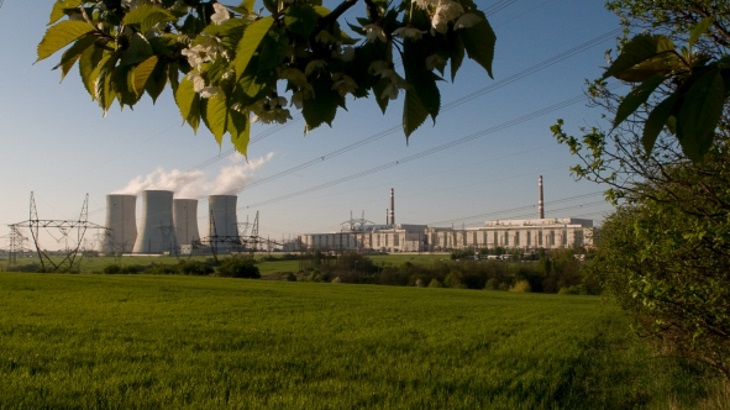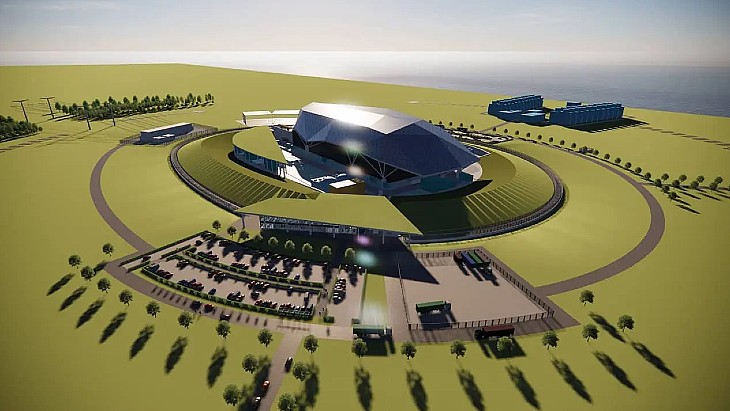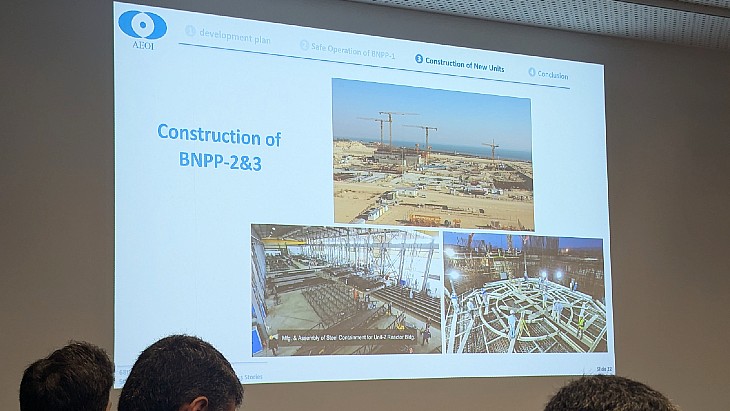Dukovany project will help repair economic damage of pandemic, lobby group says

Energy Třebíčsko, the members of which are from the local governments of Dukovany, Třebíč and Rouchovany, and about 30 companies, supports the development of the energy sector in the region, including the future operation of the Dukovany plant and the construction of unit 5.
"Hundreds of Czech companies will have work and thousands of people will be employed" by the plant's expansion project, Vítězslav Jonáš, Energy Třebíčsko chairman, said in the lobby group's statement. “Construction of a new source of nuclear power will fundamentally help the Czech economy, but it's important that the share of local industry [in the project] is as high as possible.”
The country's response to the pandemic must take into account the importance of security of energy supply and a reduction in energy imports, which the Dukovany nuclear power plant ensures, he said.
"Addressing climate commitments, economic and stable energy supplies and helping Czech industry, all of these are combined in the project to build new nuclear units, which has already been approved by the government and ČEZ," he said.
In July 2019, the Czech government gave preliminary approval for Elektrárna Dukovany II - a subsidiary of ČEZ - to build at least one new nuclear power unit. The decision was announced in a government resolution published by the Ministry of Industry and Trade. The government's energy policy, approved by the cabinet in June 2015, foresees one new unit at Dukovany, and possibly three more at the Dukovany and Temelín sites.
Six companies are understood to have shown interest in building new nuclear units in the Czech Republic - China General Nuclear, EDF, Korea Hydro & Nuclear Power, Rosatom, Westinghouse, and the Atmea consortium of Mitsubishi Heavy Industries and EDF. However, the Atmea joint venture reportedly no longer plans to participate. Under the current schedule, the reactor vendor is to be selected by the end of 2022 and a construction licence issued by 2029, with commissioning expected in 2036.
"Regardless of the selection of the main contractor, hundreds of Czech companies and employees should participate in it. Moreover, [the nuclear sector] is an area with very high added value, where Czechs can apply their know-how," Jonáš said.
The government's involvement in the project will take the form of providing state guarantees rather than direct funding, he said. "It is therefore the largest Czech investment project in history, at an advanced stage of preparation and without any direct demands on the state budget," he added.
_92619.jpg)

_84504.jpg)






_88592.jpg)
_66488.jpg)

